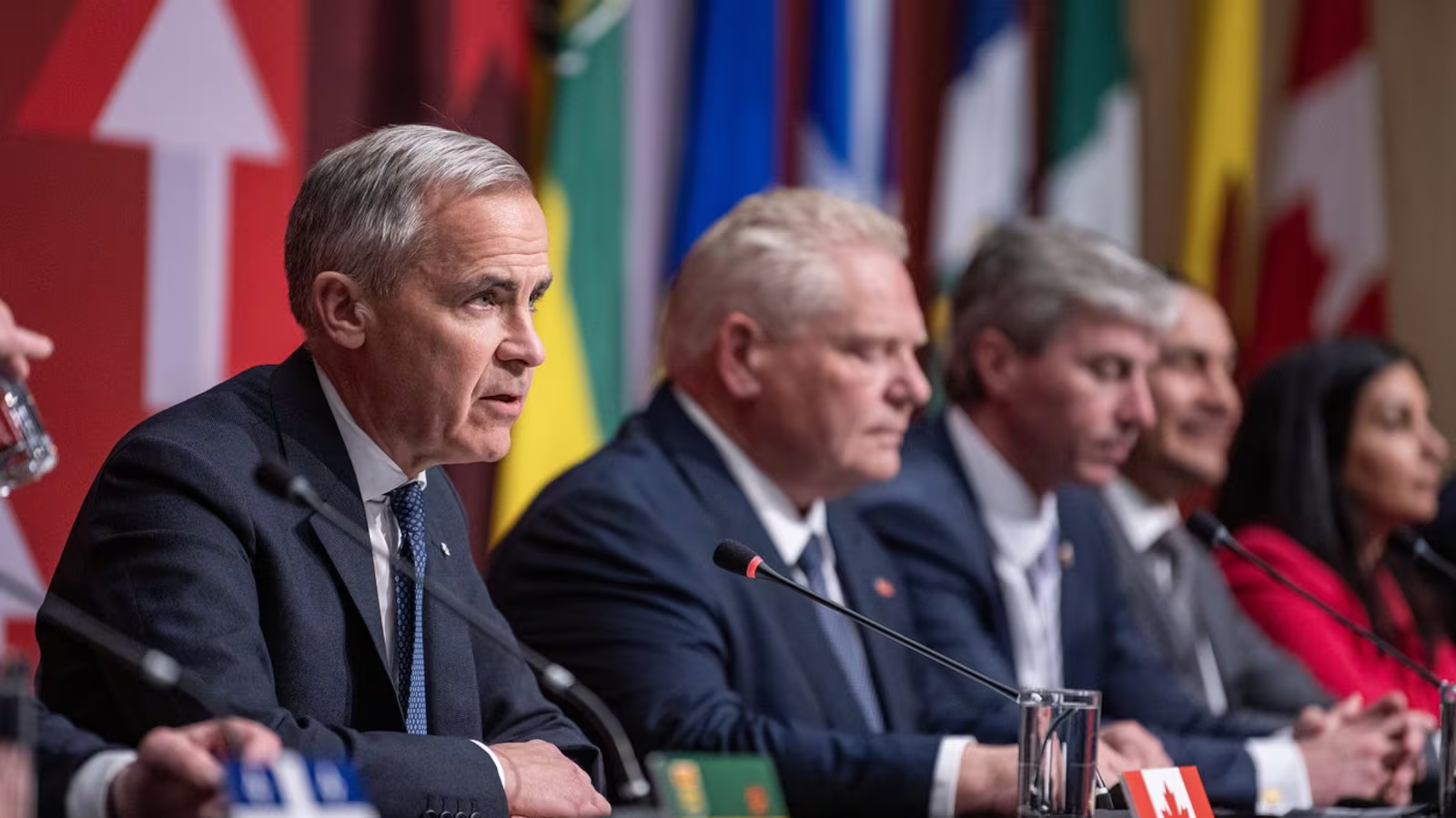Latest Ads
-
Jasmine Jewel
Call
-
Omidan group
Call
-
Amir Madanpour
Call
-
Dimo studio
Call
-
Yorkacademy
Call
-
Maryambagheri
Call
-
Shishlix Restaurant
Call

Breaking down interprovincial trade barriers won’t generate billions as billed: report
While the provinces of Ontario and Alberta signed agreements Monday to reduce interprovincial trade barriers, a new report suggests that liberalizing Canada’s domestic trade is unlikely to deliver the billions of dollars in economic benefits the federal government has promised.
The report, published by the left-wing think tank the Canadian Centre for Policy Alternatives (CCPA), says:
“Barriers to trade, investment and labour mobility within Canada are vastly overstated, and the government’s motivations for these measures are largely political spectacle.”
The report states:
“Most goods, services and investments currently move freely across provincial borders. Eliminating political exemptions in the Canadian Free Trade Agreement (CFTA) would reduce governments’ ability to protect the environment, support the domestic economy, ensure workplace safety and protect consumers.”
In the wake of Donald Trump’s global trade war and heavy tariffs on Canadian goods, Canadian Prime Minister Mark Carney and his government have promised to support the Canadian economy by removing domestic trade barriers and expanding trade with other countries.
Bill C-5, which aims to remove federal barriers to trade and interprovincial labor mobility, passed the House of Commons almost unanimously on June 20 and was confirmed by the Senate the following week.
On June 30, Canadian Trade Minister Chrystia Freeland announced that the government was removing 53 federal exemptions from the CFTA.
The federal government had previously cited studies, including a 2019 International Monetary Fund report, that claimed that completely eliminating domestic trade barriers could add $200 billion to the Canadian economy.
But a report on Monday from the Centre for Policy Alternatives questioned that figure, stating:
“This domestic trade program would not effectively offset the severe economic damage caused by Trump’s tariffs. Quite the opposite.”
The report emphasizes:
“The benefits of this program are limited to only a few sectors of the economy, and in return, reduce the power of the provincial and federal governments to deal with future economic and environmental crises.”
Freeland also said in an interview with CTV last month about the $200 billion figure:
“There are actually different estimates and no one has an exact number. But all economists agree that it is good for the economy overall.”
Meanwhile, some provinces, such as Ontario and Alberta, have signed their own memorandums of understanding to reduce trade barriers. For example:
Alberta has committed to using Canadian-made vehicles in its government fleet.
Ontario has also agreed to buy more alcoholic beverages from Alberta.
Canada's Internal Trade Committee, made up of premiers and provincial ministers, is also meeting in Quebec City this week to review the provinces' progress in eliminating exemptions.
News source
Suggested Content
Latest Blog
Login first to rate.
Express your opinion
Login first to submit a comment.
No comments yet.


































